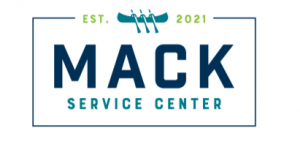Financial advisory firms have historically endured a bad reputation – either because they were too expensive, or they only helped people with lots of money to invest, or they were trying to sell clients a product or plan that didn’t align with the heart of their goals and situation. Too many Americans don’t think they can afford a Financial Advisor and planning services. Too many of them avoid partnering with an Advisor because they don’t think they have enough money to meet some criteria. But those are often the people who could benefit from a financial coach the most! It’s also the largest population in America. That’s why we founded Trilogy Financial almost 30 years ago – to provide a true fiduciary and financial coach to everyday Americans who want to live the best life possible. Our goal at Trilogy was to create something different, something people hadn’t seen before. And over the last 25 years, we’ve been evolving the firm and honing our practices to improve the financial planning industry and make an Advisor accessible to everyone.
A Purpose Driven Financial Advisor and Coach
In Trilogy Financial’s beginnings, our vision and purpose was to help Financial Advisors be better Advisors so they could help more people. However, as time has gone on, that’s evolved into something bigger. Now our purpose is to help everyday Americans gain financial independence. They are the group of people that often struggle to achieve their financial goals, and we want to focus and help those that need advice. This is the culture we’ve built today. Our Advisors want to help as many people as they can, and we’re on a mission to make those Advisors more productive so that can help provide more for our clients. That is purpose-driven business.
How to Make Financial Advisors More Productive For Clients
Most financial advisory and planning firms have an advisor-led service model, and there’s nothing wrong with that – except that not all Advisors have service as their strong suit. As a Financial Advisor, many people perceive our job is to advise people how to save and spend their money. But we believe it takes more than that to make an impact. We’re striving to build what we call a “trust transfer” where our Advisors spend more time advising clients, building Life Plans, and making recommendations, and a service team does what they do best. This is how we’re optimizing our operations at Trilogy for the benefit of our clients. This service team consists of a group of people with a distinct culture and skillset that will deliver great, helpful service to our clients. This is contrary to what’s “the norm” for financial advisory firms – and that’s exactly why we’re doing it. This is part of our efforts to bring quality financial planning and advice to everyday Americans.
Introducing the Mack Service Center
The Mack Service Center is a robust client experience service center that was Trilogy’s late co-founder Kevin “Mack” Mackintosh’s vision for the firm. His core focus was to build a meaningful client service team to support Advisors so they could do what they do best – financial planning – and provide the clients with a high quality experience. Mack designed and developed the Trilogy Service Team based on what he learned over the years as an Eagle Scout, rowing crew member and in his time in the financial planning business. From day one, he had a clear vision of what Trilogy could accomplish when we all worked together and focused on service. A few years back, he took the ball and really got it rolling for this project. He found the right people to lead it and get it off the ground. Right before his untimely passing in early 2020, he had nearly completed building the Service Center team vision. Following his loss, under the leadership of our founder/President, Jeff Motske, in conjunction with Eric Perkins – we built out the actual Service Center, team, outlined processes, operations and more. Kevin Mackintosh instilled the right attitude, built the right culture and we’re proud to name our Mack Service Center after him so his legacy lives on.
The Future of Trilogy Financial and the Mack Service Center
Our goal is to have a well-regarded Advisor in front of every everyday American. Too many financial advisory firms want to work with high-net-worth individuals, but it’s those who are 52 years old with $400,000 in their retirement who really need our support and education to get to where they want and need to be. These are everyday Americans, and they deserve for someone to help them pursue their dreams. And we’re changing that. We rolled out the Mack Service Center team this year to support our Financial Advisors’ current planning efforts with each client. This is our way of connecting the financial planning industry back with the real-life issues of Americans and helping each of them plan and live the life of their dreams.


